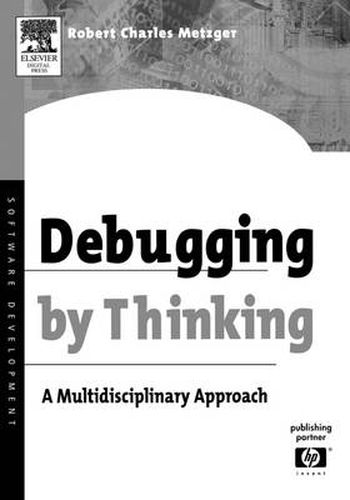Readings Newsletter
Become a Readings Member to make your shopping experience even easier.
Sign in or sign up for free!
You’re not far away from qualifying for FREE standard shipping within Australia
You’ve qualified for FREE standard shipping within Australia
The cart is loading…






Debugging by Thinking: A Multi-Disciplinary Approach is the first book to apply the wisdom of six disciplines-logic, mathematics, psychology, safety analysis, computer science, and engineering-to the problem of debugging. It uses the methods of literary detectives such as Sherlock Holmes, the techniques of mathematical problem solving, the results of research into the cognitive psychology of human error, the root cause analyses of safety experts, the compiler analyses of computer science, and the processes of modern engineering to define a systematic approach to identifying and correcting software errors. * Language Independent Methods: Examples are given in Java and C++ * Complete source code shows actual bugs, rather than contrived examples * Examples are accessible with no more knowledge than a course in Data Structures and Algorithms requires * A thought process diary shows how the author actually resolved the problems as they occurred
$9.00 standard shipping within Australia
FREE standard shipping within Australia for orders over $100.00
Express & International shipping calculated at checkout
Debugging by Thinking: A Multi-Disciplinary Approach is the first book to apply the wisdom of six disciplines-logic, mathematics, psychology, safety analysis, computer science, and engineering-to the problem of debugging. It uses the methods of literary detectives such as Sherlock Holmes, the techniques of mathematical problem solving, the results of research into the cognitive psychology of human error, the root cause analyses of safety experts, the compiler analyses of computer science, and the processes of modern engineering to define a systematic approach to identifying and correcting software errors. * Language Independent Methods: Examples are given in Java and C++ * Complete source code shows actual bugs, rather than contrived examples * Examples are accessible with no more knowledge than a course in Data Structures and Algorithms requires * A thought process diary shows how the author actually resolved the problems as they occurred